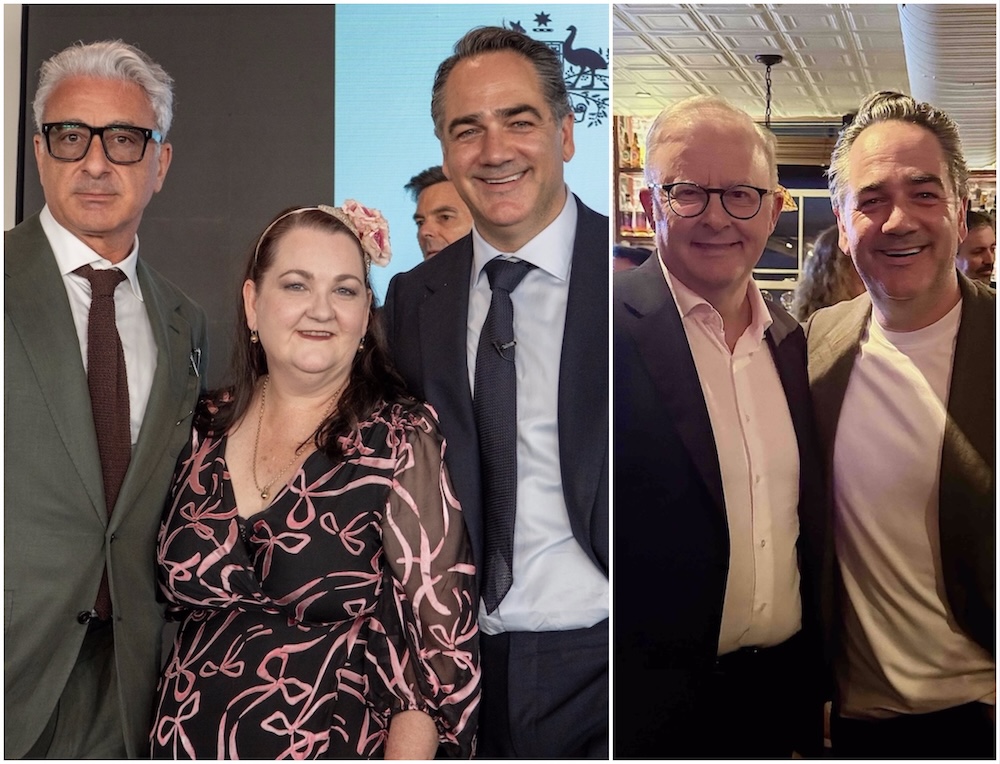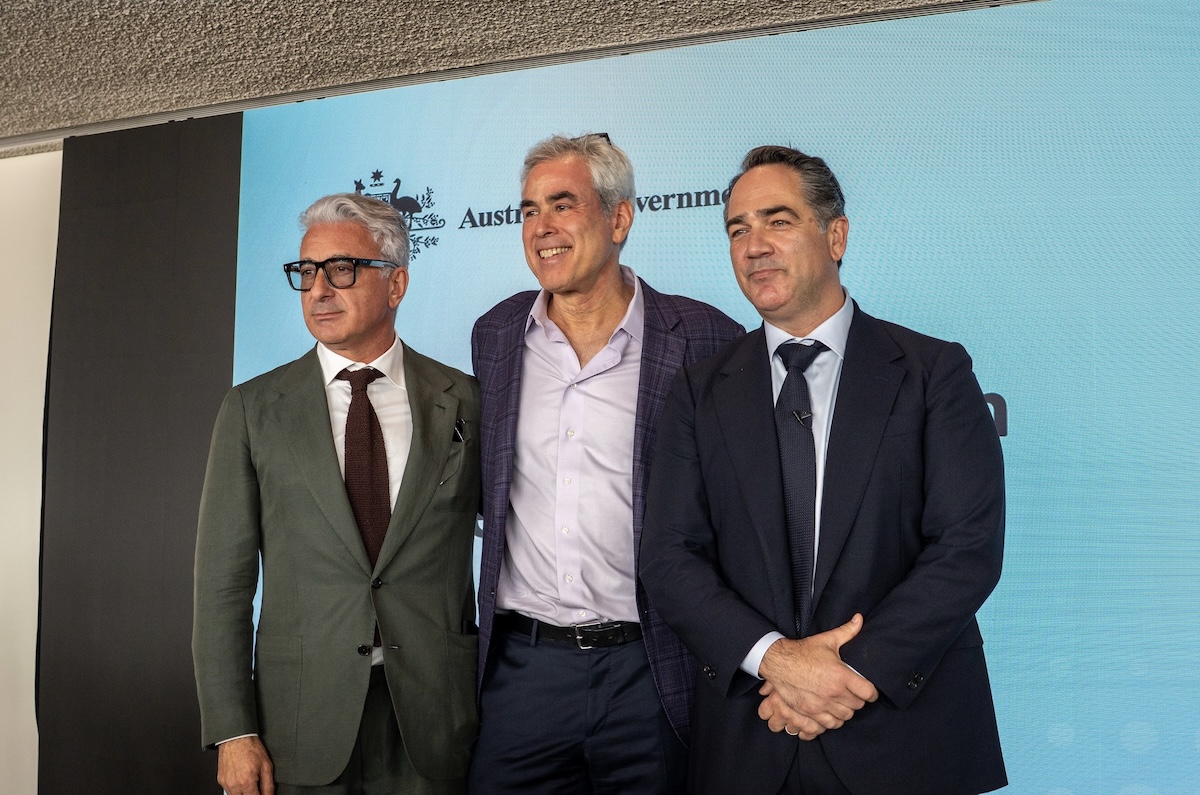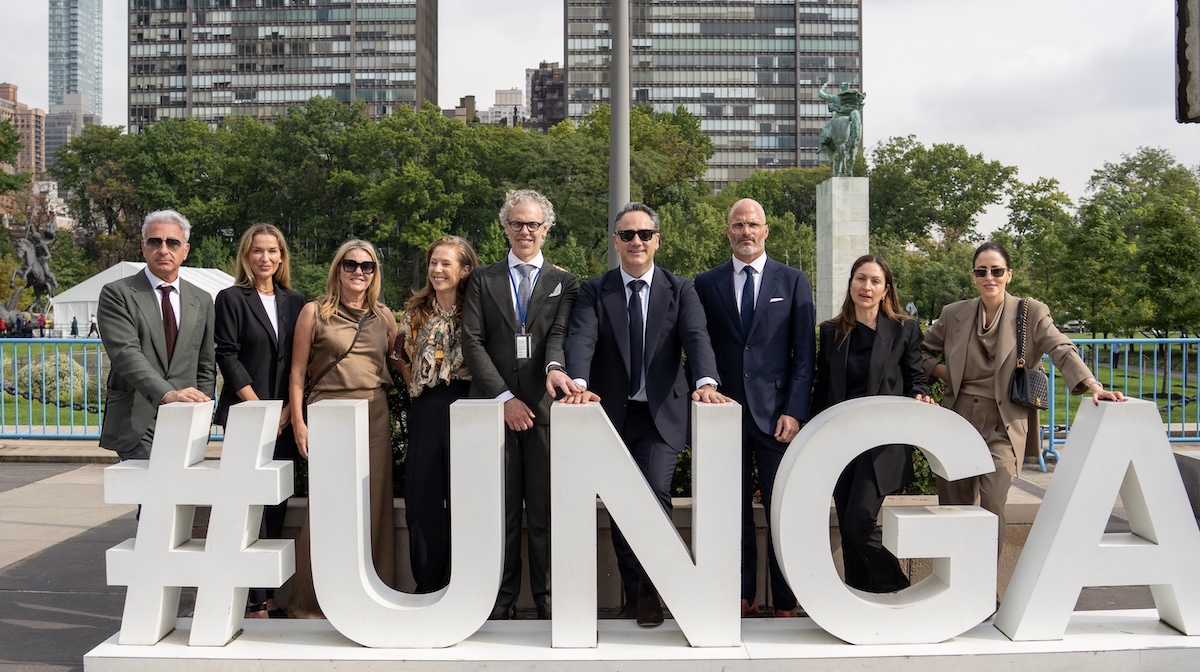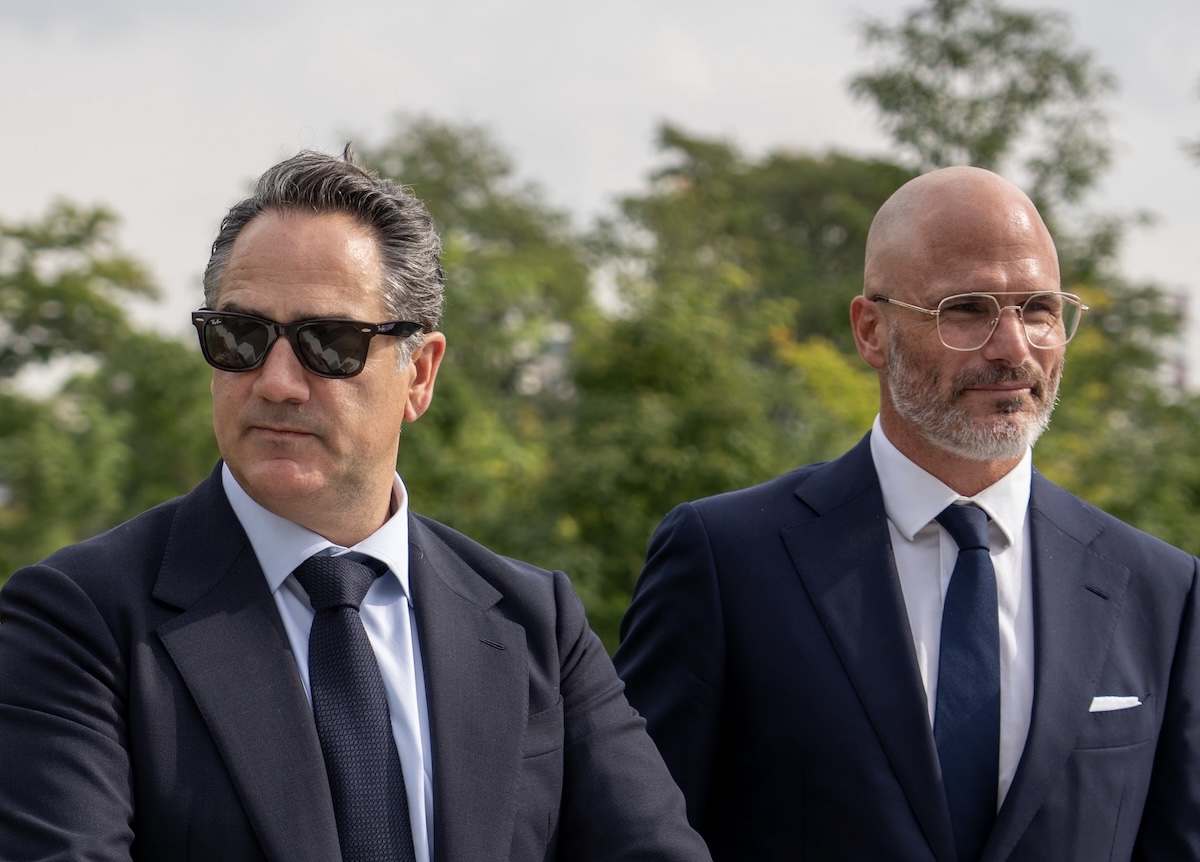FINCH founder Rob Galluzzo and Nova’s Michael “Wippa” Wipfli celebrate 36 Months’ UN success with Prime Minister Anthony Albanese in NYC

In a quintessentially Aussie moment, Prime Minister Anthony Albanese recently “rang the bell” and shouted the entire New York pub Old Mates, to celebrate the global impact of 36 Months – the social change campaign that successfully advocated for raising the minimum age for social media access from 13 to 16 years, aiming to protect teens from the mental health risks of early exposure. The celebration followed co-founders Rob Galluzzo, founder of FINCH, and Michael “Wippa” Wipfli presenting Australia’s world-first social media reforms at the United Nations General Assembly in New York.
The Aussie-themed bar, owned by Hugh Jackman, Andy Lee, Hamish Blake, and Ash Barty, traditionally shouts the pub when an Aussie champion rings the bell, and in this case, Albanese was on hand to toast the success of 36 Months, marking a symbolic recognition of the start-up’s influence on social media policy worldwide.
Australia’s landmark social media laws triggered a global domino effect, with the European Union backing calls to ban children under 16 from social media – announced at the United Nations General Assembly.
Standing alongside the Australian PM and Galluzzo and Wippa, EU Commission President Ursula von der Leyen signalled Europe would move toward setting a “digital age of majority” across the bloc.
Reflecting the strong international interest and commitment to safeguarding children online, she said, “As a mother of seven and grandmother of five, I share this view. We all agree young people should reach a certain age before they smoke, drink, or access adult content. The same can be said for social media.”
Australia is the first nation in the world to legislate a social media minimum age of 16 after 36 Months after the grassroots movement took grieving parents and a 147,000-signature petition to the Prime Minister.
The law comes into effect on December 10, with tech giants facing penalties of up to $49.5M for breaches. Von der Leyen said she would establish a panel of experts and talk to parents, teachers and young people “to assess what steps make sense” at the EU level.
The 27-nation bloc has some of the world’s strictest rules to fight harmful content online, with several investigations looking into how the biggest social media platforms protect children.
On 7 November, 36 Months took grieving families, Charlotte O’Brien’s parents, Mat and Kelly, and Robb Evans, father of Liv – whose daughters suicided due to social media issues – to meet the Prime Minister with its petition, signed by over 147,000 Australians.
The PM changed the law that day.
In a powerful UN address (full speech below), Wippa told world leaders: “Today I feel proud to be an Australian and a parent – not just because of our government and its policy, but because of our people and their power.
“Those signatures didn’t just change a law, they’ll change a generation.”
Says Galluzzo: “This reform is a source of national pride and a global precedent. Leaders from Europe, Asia, and the Americas are now asking how they can follow Australia’s lead.”
Communications Minister Anika Wells, psychologists Jonathan Haidt and Dr Danielle Einstein, and Australian parents who lost children to social media harms joined the New York delegation.


While social media companies Facebook and Instagram owner Meta have expressed concerns about Australia’s law, the move marks a historic turning point in the global fight to protect children online.
Greece and Spain are already pushing for restrictions, and Denmark is prioritising the issue during its EU presidency, while France has also driven the issue to the top of the agenda.
It recently passed a law requiring parental consent for social media users under the age of 15, higher than the 13-year-old limit set by the platforms themselves.
Its lawmakers have gone further in calling for a “digital curfew” for older minors, for example, between 10pm and 8 am for 15 to 18-year-olds, with a particular focus on concerns about TikTok and content encouraging self-harm.
Earlier this year, 36 Months launched a monthly podcast, hosted by 36 Months Director Greg Attwells (pictured below right in New York) which gives listeners a behind the scenes look into the campaign.
At the time Attwells said: “36 Months always had a two-phase plan. One was raising the age of social media citizenship. Phase two was filling the void. This podcast is dedicated to empowering parents, teachers, and caregivers to support teens during that transformative period when they’re off social media to foster resilience, self-esteem, and a sense of belonging. It helps parents explore meaningful ways to fill that void.”

In May, 36 Months, working with production company FINCH and creative agency Supermassive, won a Sustainable Development Goals (SDG) Pencil for the campaign at The One Show 2025. The SDG Pencil is one of The One Show’s special awards, created in cooperation with the United Nations Office for Partnerships and nonprofit PVBLIC Foundation to reward agencies and brands for work that betters the world and contributes to securing a sustainable future for all.
36 Months also made the Dan Wieden Titanium Lions shortlist at Cannes Lions this year, which celebrates game-changing creativity that breaks new ground and challenges industry norms. While it didn’t take home a Titanium Lion, the campaign did pick up a Silver Lion in the Cannes PR Lions, further cementing its impact on both social change and the creative industry.
